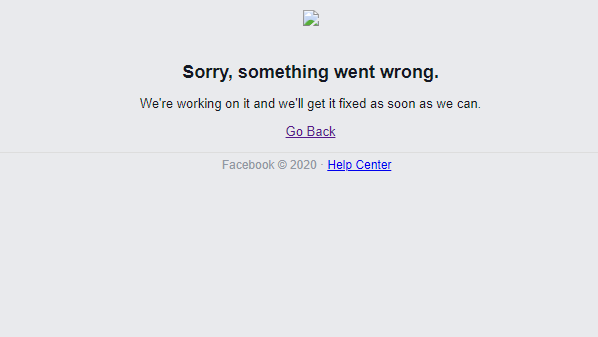Browsers and apps around the world had the same message on Monday: “Sorry, something went wrong.”
Starting at 8:45 a.m. PST on Oct. 4, Facebook was quiet for a change. A global outage took down the social media giant, and Instagram and WhatsApp came down with it. The websites reporting outages struggled to keep up with the flood of traffic trying to connect with the online platforms.
For me, it was a relief.
I remember when I first signed up for a Facebook account. At 13 years old, I had to lie about my age to be eligible for a profile.
Since then, I’ve had Facebook for more than half of my life. Of course, I can still remember a time without it, like I can remember dial-up internet and a time when a phone could only be used for calls. Telling my younger siblings this, though, tends to make me feel much older, like when our grandmother tells us about buying sliced bread for the first time.
For a few hours, I wondered what would happen if this was the end of Facebook. What would a world without social media look like? We’d have to speak out loud within earshot of another sentient being to share our opinions. We could ask our family and friends how their day was without already knowing exactly what they ate for brunch or what meme tickled their funny bone. We could talk about the tough/embarrassing things that we’re not willing to share with the whole world online, but may be even more important. Instead of seeing mundane “updates” from people we’ve lost touch with, people would have to share their photographs in person – and perhaps be more selective about what they show. And no longer would we have our own 24/7 comment section egging us on or tearing us down.
After so much time spent isolated during the pandemic, this could be the chance to reset how we engage with each other. Mental health has certainly taken blow after blow of limited options to gather with our loved ones or meet new people. Instead of the constant yet distant contact, we could have a chance to recharge our batteries and reflect on what really fuels us. We could take a break from the onslaught of always seeing someone having a better time, someone else having it worse, or the rollercoaster of the others' opinions.
I sometimes feel like a silent spectator, watching life – or rather, other people’s lives – pass by. Yet the ease of social media can make it hard to resist. It can feel like there is always something you should be reading, commenting on to signal your disapproval or praise, or endless personal moments and thoughts you could share.
And for what?
Just before Facebook became unresponsive, a whistleblower from inside the company publicly shared how Facebook’s own research shows the platform magnifies hate and misinformation, in turn polarizing our society. (Not surprised? Me neither.) More separation seems to be the last thing we need right now.
Time will tell what “went wrong,” but when I think of the gargantuan data centres built to store everything we’ve ever put online, it seems the internet has crossed into the physical sphere. Our status updates and selfies have a real, economic and environmental impact. Not to mention the political and lately health implications, I often wonder what role Facebook plays in our society – and what role do we play when we engage with it?
But six and a half hours later, Facebook was restored. Despite the many notifications vying for my attention, I found there was nothing I really missed out on.



